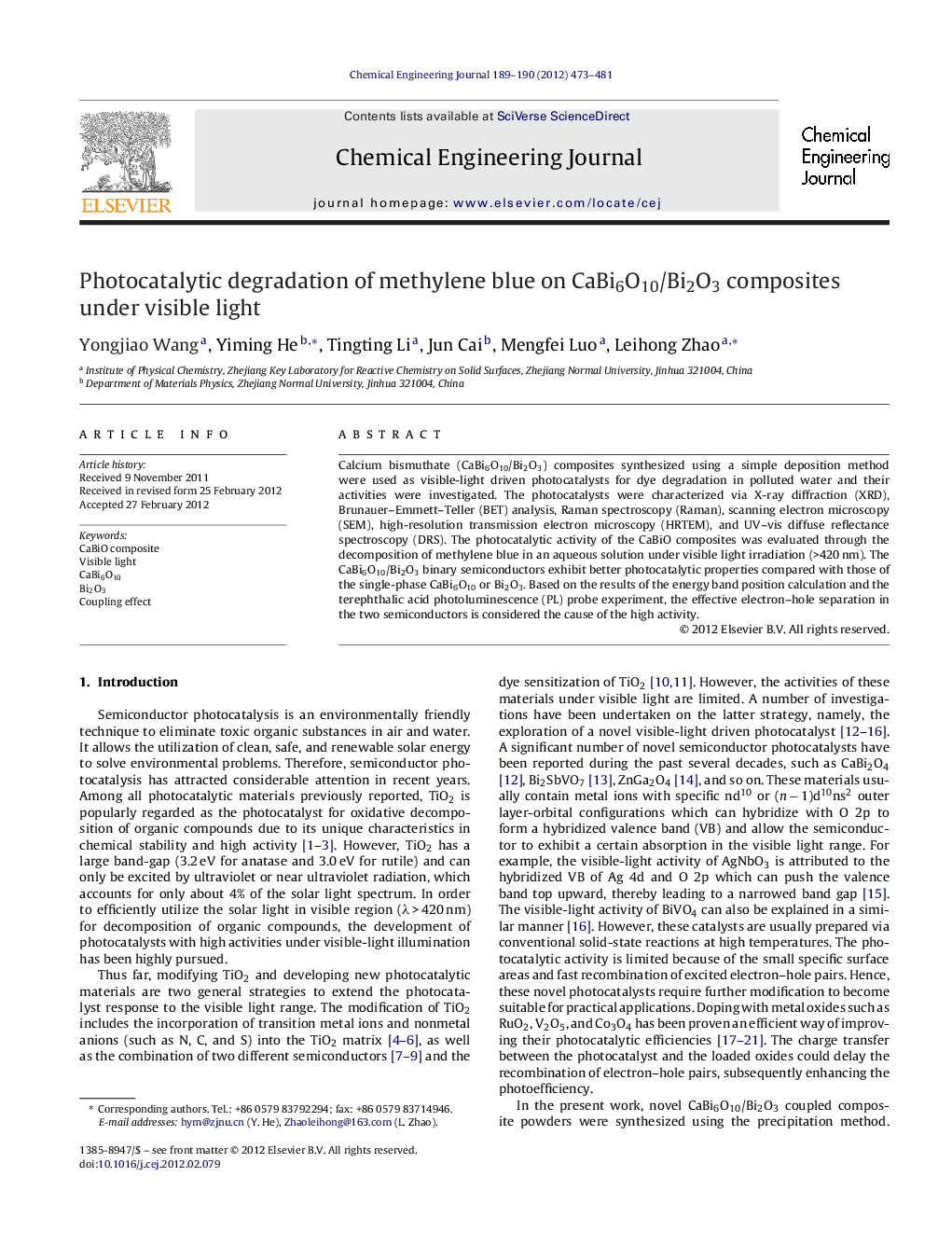| کد مقاله | کد نشریه | سال انتشار | مقاله انگلیسی | نسخه تمام متن |
|---|---|---|---|---|
| 150003 | 456441 | 2012 | 9 صفحه PDF | دانلود رایگان |

Calcium bismuthate (CaBi6O10/Bi2O3) composites synthesized using a simple deposition method were used as visible-light driven photocatalysts for dye degradation in polluted water and their activities were investigated. The photocatalysts were characterized via X-ray diffraction (XRD), Brunauer–Emmett–Teller (BET) analysis, Raman spectroscopy (Raman), scanning electron microscopy (SEM), high-resolution transmission electron microscopy (HRTEM), and UV–vis diffuse reflectance spectroscopy (DRS). The photocatalytic activity of the CaBiO composites was evaluated through the decomposition of methylene blue in an aqueous solution under visible light irradiation (>420 nm). The CaBi6O10/Bi2O3 binary semiconductors exhibit better photocatalytic properties compared with those of the single-phase CaBi6O10 or Bi2O3. Based on the results of the energy band position calculation and the terephthalic acid photoluminescence (PL) probe experiment, the effective electron–hole separation in the two semiconductors is considered the cause of the high activity.
► CaBi6O10/Bi2O3 composite is a novel visible-light driven catalyst.
► CaBi6O10/Bi2O3 photocatalyst shows high activity for methylene blue degradation.
► The generation of OH during reaction is proven by photoluminescence spectra.
► The coupling effect between CaBi6O10 and Bi2O3 is the reason of the high activity.
Journal: Chemical Engineering Journal - Volumes 189–190, 1 May 2012, Pages 473–481